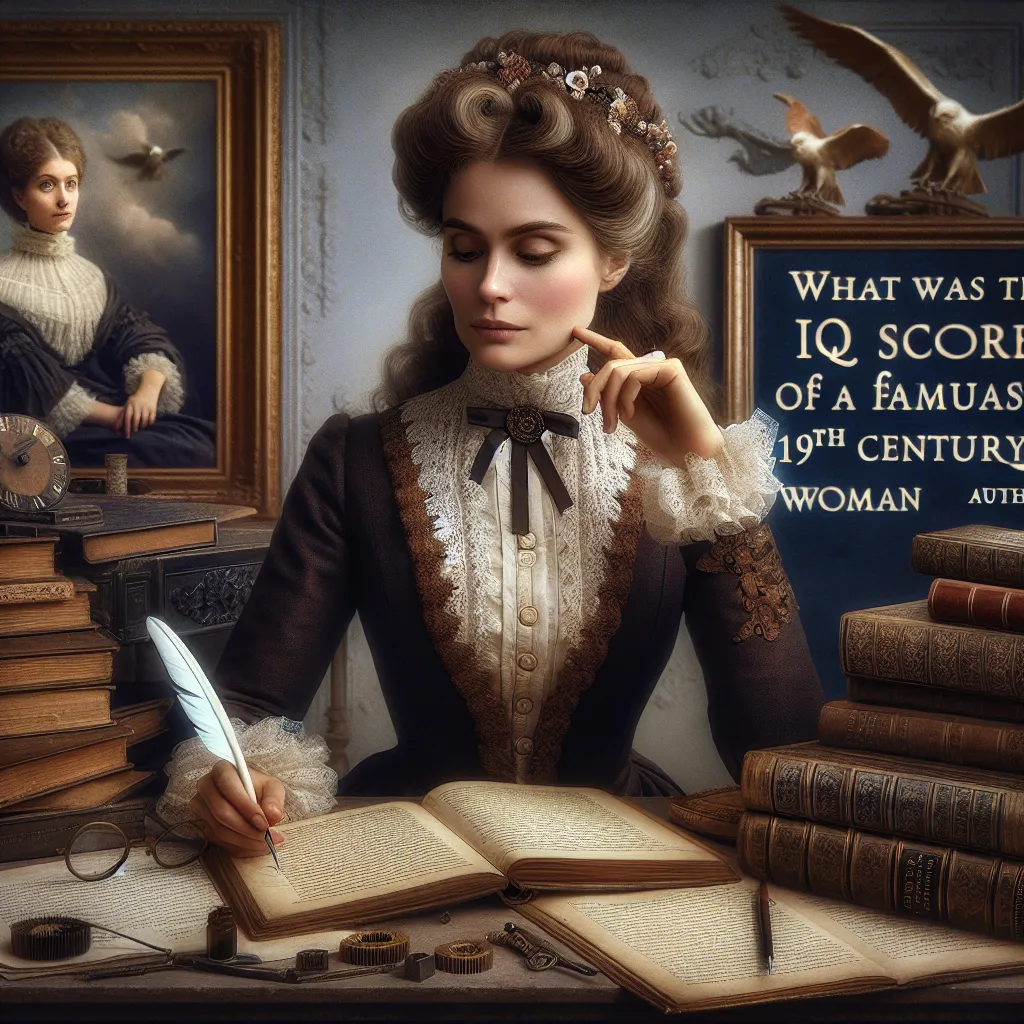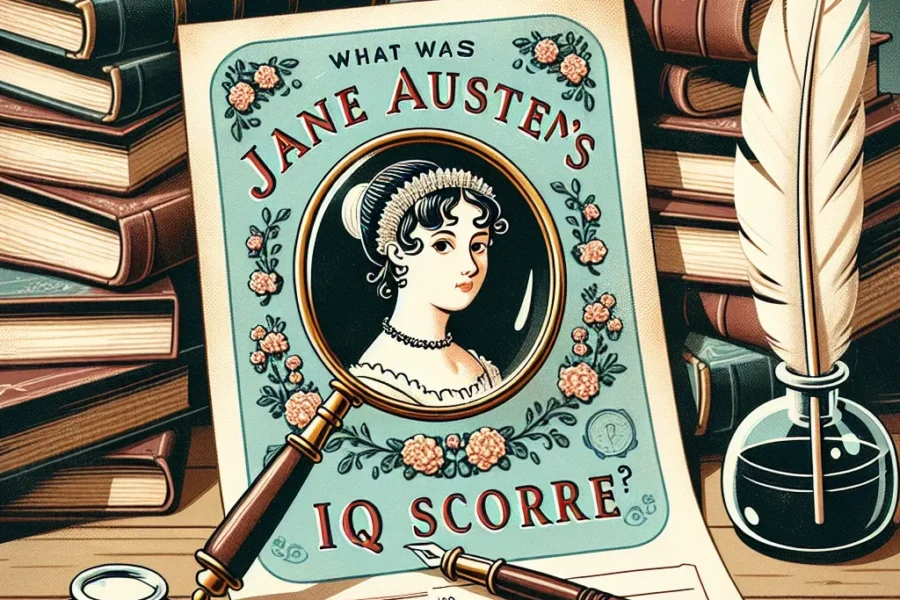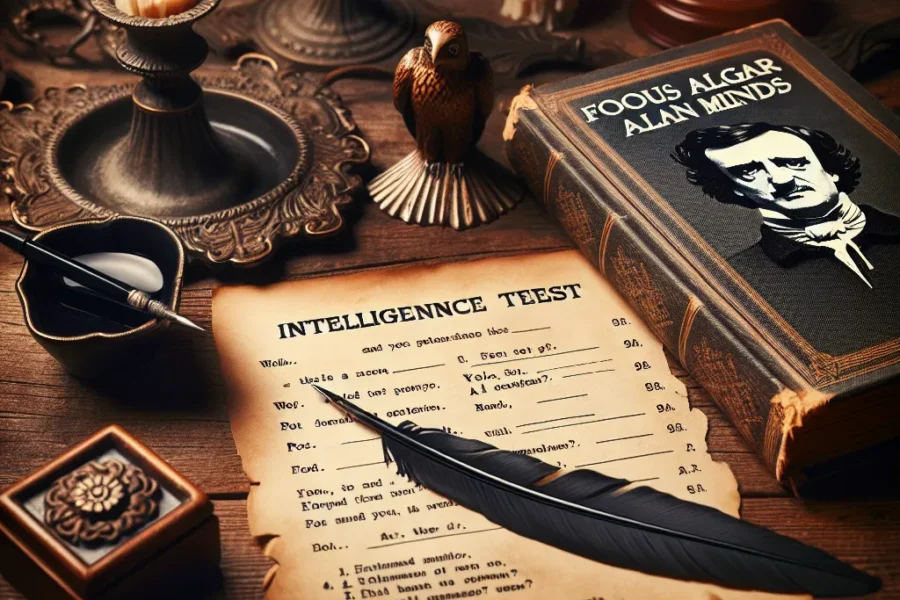What Was Mary Shelley’s IQ Score?
The fascination with historical figures often leads us to question many aspects of their lives, one of which is their intelligence. Mary Shelley, the renowned author of “Frankenstein,” is no exception. Her literary brilliance and intricate storytelling have led many to wonder about her intellectual capabilities. However, estimating an IQ score for someone who lived in the 19th century, without any direct evidence or records, is a challenging endeavor. Was Mary Shelley a genius by contemporary standards? This blog delves into her life, work, and supposed intelligence.
If you are looking for legitimate IQ Tests which pass the entry bar for Mensa, see our IQ Tests.
Mary Wollstonecraft Shelley was born on August 30, 1797, into an environment of intellectual fervor and social reform. Her father, William Godwin, was a political philosopher, and her mother, Mary Wollstonecraft, was a pioneer of women’s rights. Raised in a household where conversation around revolutionary ideas was the norm, Mary Shelley was exposed to an environment rich in intellectual stimuli. Yet, how can this environment contribute to understanding her potential IQ?
Childhood and Early Education
The upbringing of Mary Shelley played a significant role in shaping her cognitive abilities. Although her mother passed away shortly after her birth, her father ensured that she received a comprehensive education. William Godwin’s connections with various literary and philosophical luminaries meant that Mary was continually surrounded by ideas and debates that would challenge and refine her intellect.
From a young age, Mary had access to her father’s extensive library, which included works of classical literature, history, and philosophy. Her father also encouraged her to engage in intellectual discourse. This unique learning environment arguably provided her with cognitive and analytical skills that set her apart from her peers.
A Precocious Talent
By the time she was a teenager, Mary Shelley was already demonstrating signs of exceptional intellectual promise. Her inclination towards literature and her ability to understand and critique complex texts at an early age are indicators of her high cognitive abilities. It was during her teenage years that she began forming the ideas that would later culminate in her magnum opus, “Frankenstein.”
Mary’s relationship with the poet Percy Bysshe Shelley, whom she married, further contributed to her intellectual development. Percy was a well-established poet and thinker, and their union was built on mutual respect and intellectual exchange. Their collaborative discussions on literature, philosophy, and science would have further honed Mary Shelley’s intellectual faculties. Would her ability to hold her own in discussions with such a towering figure lend credibility to the idea that her IQ was exceptionally high?
The Creation of “Frankenstein”
“Frankenstein,” published in 1818 when Mary Shelley was just 20 years old, is often cited as one of the earliest science fiction novels. The novel’s themes and philosophical questions about the nature of creation, the responsibilities of the creator, and the ethical implications of scientific advancements reveal a deep-seated intellectual curiosity.
Creating a work of such complexity and foresight at a relatively young age suggests an intellect that operates at a level well above average. Her ability to interweave scientific understanding with narrative storytelling points to a high degree of cognitive dexterity and abstract thinking.
The novel was conceived during the summer of 1816, a year famously referred to as the “Year Without a Summer” due to a volcanic winter caused by the eruption of Mount Tambora. The Shelleys, along with Lord Byron and John Polidori, were confined indoors by incessant rain during their stay at the Villa Diodati by Lake Geneva in Switzerland. They entertained themselves by reading German ghost stories and subsequently decided to have a ghost story writing competition. Mary Shelley’s story eventually evolved into “Frankenstein.”
Considering the novel’s innovative narrative structure and profound themes, many speculate that Mary Shelley possessed a genius-level intellect. Could it be that “Frankenstein” is itself a testament to an IQ that would rank her among the most intelligent individuals of any era?
Post-“Frankenstein” Literary Contributions
While “Frankenstein” is Mary Shelley’s most famous work, it was by no means her only literary contribution. She wrote several other novels, including “Valperga,” “The Last Man,” “Lodore,” and “Falkner,” as well as numerous short stories, articles, and biographies. Each of these works showcases her intellectual versatility and depth.
Her later works also revealed her engagement with political and social issues, demonstrating her ability to think critically about the world around her. Her novel “The Last Man,” for instance, delves into themes of isolation and societal collapse, echoing contemporary discussions about human behavior and societal structure. This ability to integrate multiple domains of knowledge supports the idea that Mary Shelley’s intellect was extraordinary.
Scientific Curiosity and Involvement
Another factor that adds to the notion of Mary Shelley’s high intelligence is her scientific curiosity. She was well-versed in the scientific discoveries and debates of her time. Her understanding of galvanism, a form of spontaneous muscle contraction discovered by Luigi Galvani, and her engagement with the scientific theories propagated by Erasmus Darwin (grandfather of Charles Darwin) were critical in shaping the scientific backdrop of “Frankenstein.”
Her ability to comprehend and creatively engage with complex scientific ideas suggests a level of cognitive function that might well be indicative of a high IQ. Unlike many of her contemporaries, who often viewed scientific advancements with skepticism or simple curiosity, Mary Shelley actively sought to understand and integrate these ideas into her literary work.
Critical Reception and Legacy
Although the concept of measuring IQ did not exist during Mary Shelley’s time, the lasting impact and critical reception of her work have led many modern scholars to theorize about her intellectual capabilities. Academic interest in both the content of her work and her innovative approach to literature supports the idea of her possessing a high level of cognitive function.
Today, Mary Shelley’s “Frankenstein” is not just a piece of literature; it is studied across multiple disciplines, including literature, ethics, philosophy, and science. This interdisciplinary impact is a testament to the writer’s extraordinary intellect.
Conclusion: Estimating an Unmeasurable Metric
So, what was Mary Shelley’s IQ score? The truth is, we can never know. Attempts to retroactively assign an IQ score to historical figures is at best speculative. What we can acknowledge is that Mary Shelley’s intellectual legacy, viewed through the lens of her literary and scientific engagements, certainly places her among the highly intelligent individuals of her time. Her ability to create works that are still relevant and thought-provoking centuries later speaks volumes about her cognitive abilities.
While it’s tantalizing to speculate that she might have had an IQ score that would place her among today’s geniuses, what truly matters is her intellectual legacy. Mary Shelley’s life, work, and enduring impact offer ample evidence of an extraordinary mind, one that continues to inspire and challenge us today.
If you are looking for legitimate IQ Tests which pass the entry bar for Mensa, see our IQ Tests.



Leave a Comment